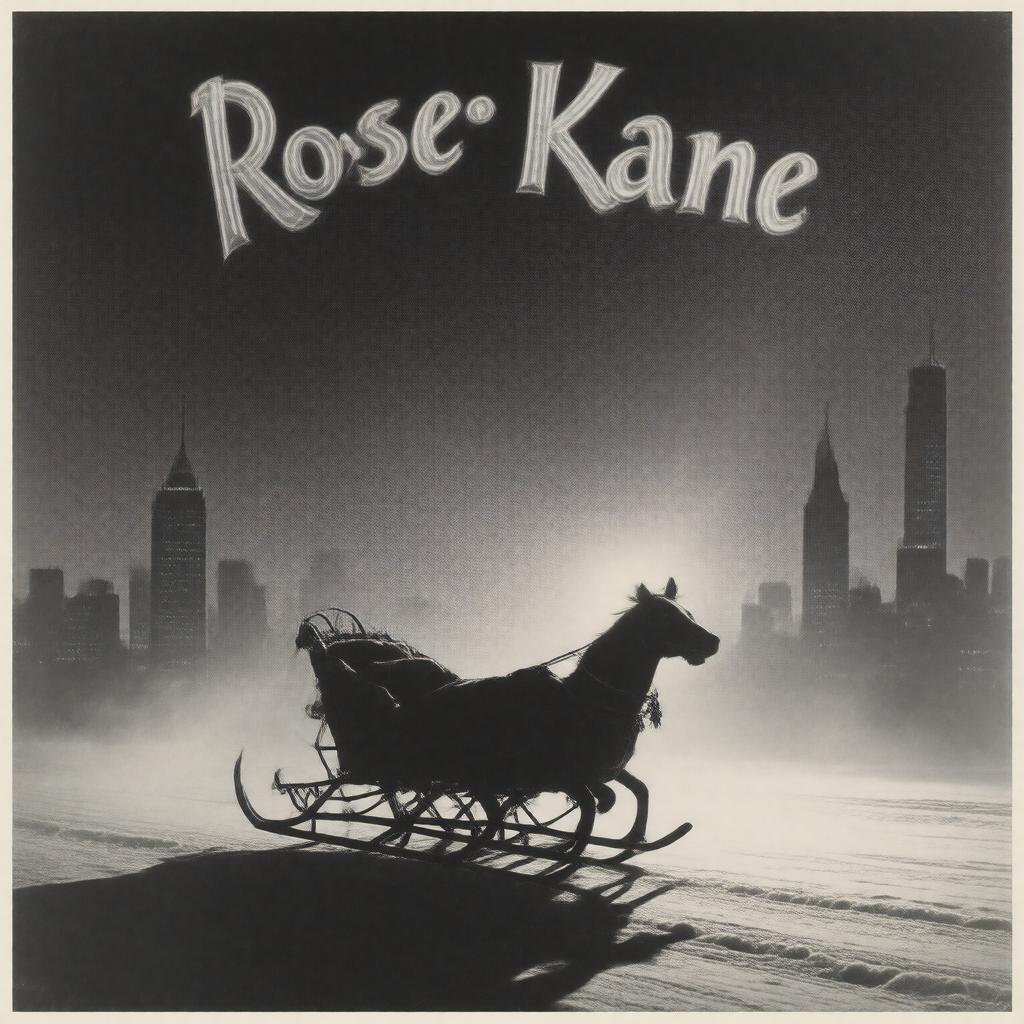Prompt
"a cinematic poster of the film Citizen Kane, a black and white drama mystery film from 1941, directed by Orson Welles, featuring a silhouette of a large, mysterious, and ornate sled, with the iconic word 'Rosebud' in the background, set against a dark and moody cityscape at dusk, in a style that reflects the film's innovative cinematography and deep focus photography."

